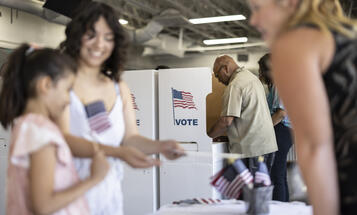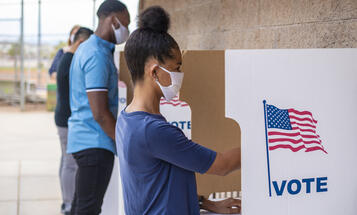
Challenging Voter Suppression in North Carolina
In 2013, the U.S. Supreme Court effectively gutted a provision of the Voting Rights Act of 1965 that required states and counties with a history of voter discrimination to get approval from the federal government prior to enacting changes to their voting laws.
Relieved of federal oversight for the first time in nearly 50 years, the state of North Carolina wasted no time in making changes to its voting laws that harmed voters of color and other traditionally disenfranchised populations. Shortly after the Supreme Court’s decision, North Carolina enacted a bill (“H.B. 589”) that significantly reduced the opportunities to register and vote in the state. Among other things, this bill:
- Eliminated same-day registration;
- Reduced the early voting period;
- Established a strict voter ID law; and
- Eliminated pre-registration for 16- and 17-year olds.
How Demos’ Clients Have Been Affected by H.B. 589
Recently, Demos and its allies sent a letter to Kim Strach, the Executive Director of the North Carolina State Board of Elections, notifying her that the Division of Motor Vehicles (“DMV”) has been systematically failing to transmit voter registration information to election officials, as required by Section 5 of the National Voter Registration Act of 1993. (Under Section 5, the DMV is required to provide voter registration services whenever an individual applies for, or updates their address on, a driver’s license or state-issued identification card.)
Demos and other voting rights groups are currently representing three North Carolina residents who were denied their right to vote after the DMV failed to process their voter registration requests and, because H.B. 589 eliminated same-day registration, they had no ability to correct the problem when they went to vote. While all of our clients visited different DMV offices, their experiences were the same:
All of our clients either applied for or changed the address on their driver’s license prior to the deadline for registering for the November 2014 General Election; all of our clients indicated that they wanted to register to vote and left the DMV believing that they would be placed on the rolls; all of our clients went to cast an early ballot on a day when same-day registration was previously available; all of our clients were told that their names did not appear on the rolls; and all of our clients were forced to cast a provisional ballot that was ultimately not counted.
The stories of our clients—Sherry Denise Holverson, Isabel Najera, and Alexandria Lane—are not outliers, but rather represent a problem that has been occurring across the state of North Carolina. It is a problem that prevents North Carolinians who have registered to vote from engaging in the democratic process.
Had North Carolina not eliminated Same-Day Registration, the state’s failure to properly transmit the voter registration information our clients and countless others would not have resulted in individuals being denied their fundamental right to vote. Rather, when Sherry, Isabel, and Alexandria went to the polls and were told that their names did not appear on the rolls, they could have updated their information, cast a ballot, and had their votes counted.
Today, a trial challenging H.B. 589—which is expected to take at least two weeks—is beginning in North Carolina. The outcome of this trial could have huge implications for not only North Carolina residents like our clients and others who relied on the voter enfranchisement measures that were eliminated by H.B. 589, but also in efforts to combat the wave of voter suppression laws that appeared across the U.S. after the Supreme Court weakened the Voting Rights Act.


